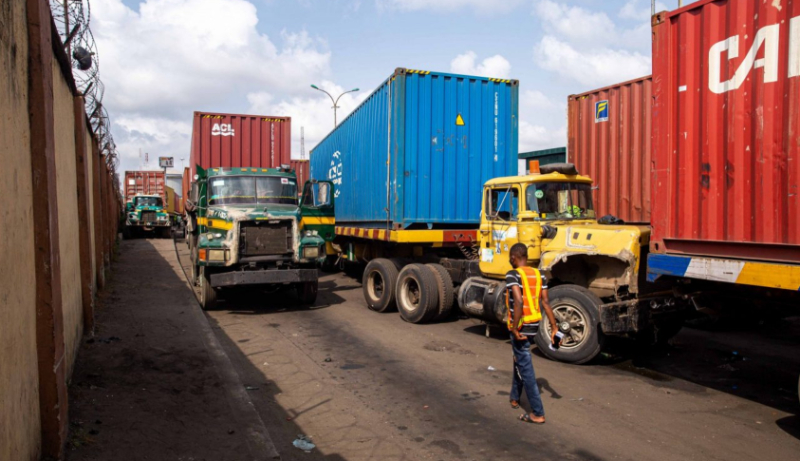To improve earnings from non-oil export, the Federal Government and local manufacturers are exploring sustainable incentives to encourage non-oil exporters for improved productivity and export.
Indeed, the Federal Ministry of Industry, Trade and Investment has assured manufacturers and exporters of the federal government’s resolve to make foreign exchange available for businesses in the country.
The Minister of Industry, Trade and Investment, Niyi Adebayo, said courtesy of the recent efforts put together by economic managers to address insecurity in the country, in the next few months there would be enough foreign exchange to go around for the business community.
The Minister stated this at the 5th yearly meeting of the Manufacturers Association of Nigeria Export Promotion Group (MANEG) in Lagos
In his words: “We believe that with the steps that have been taken lately with the result and with the results that are being achieved, I do not doubt that within the next few months foreign exchange supply would increase and will improve and there will be more money to go around.”
He noted that the theme of the event tagged “Non-Oil Export Incentives in Nigeria – Effectiveness and Sustainability” is apt, saying that Nigeria now more than ever needs to support exports.
“Historically the biggest incentive for exporters has been the Export Expansion Grant (EEG). Over the years, EEG has faced several constraints and has changed form several times. The Federal Ministry of Industry, Trade and Investment understands the importance of paying outstanding EEG commitments to exporters and we have consistently championed your case.
“I am pleased to see that this issue is currently being resolved at the National Assembly and that the 38 companies omitted from the previous list of EEG recipients submitted to the Debt Management Office now have an opportunity to receive payment.
“In addition to EEG, the Nigeria Export Promotion Council (NEPC) also administers the Export Development Fund. As you know, this incentive aims to prepare, facilitate and support new exporters in their efforts to penetrate global markets. It provides training, financial and logistics support. The Central Bank of Nigeria (CBN) has also established a N500 billion non-oil export stimulation facility as one of their intervention programmes to help manufacturers expand their scale of production.
“There are also numerous fiscal incentives for companies wishing to increase their local production base like three to five-year tax holidays for enterprises in what we deem pioneer industries; tax-free operations and no restrictions on expatriate quotas in our Free Trade Zones; capital allowances for manufacturers; among others.”
He pointed out that as a nation, this is the time to build a resilient and competitive manufacturing sector that will see the country through the next 50 years.
“The face of Africa Is changing; especially in light of the African Continental Free Trade Area (AfCFTA), one of the most important and strategic international economic agreements ever enacted. As the largest economy in Africa, Nigeria’s contribution to the AfCFTA is pivotal to its success. In turn, that means the contribution of the companies here present to inter-African exports is pivotal to Nigeria’s success under AfCFTA. Your success is Nigeria’s success, and the Federal Government is willing to give you the support that you need to win,” he averred.
Earlier, the president, the Manufacturers Association of Nigeria (MAN), Engr. Mansur Ahmed represented by the Director General, MAN, Segun Ajayi-Kadir, said there are lots of export incentives introduced by the Federal Government and new ones springing up from the different ministries, departments and agencies but the sustainability of these incentives has been the greatest worry of every exporter.
“I am hopeful that this AGM will light up the government’s interest to further ensure that non-oil incentives in Nigeria are all up and active for the benefit of the Nation’s economy,” he said.
He noted that the current economic realities in Nigeria today calls for immediate policy redirection, especially the heightened exchange rate, high energy cost, cost of borrowing that has further impaired the progress and prosperity of the manufacturing sector.
“For us at MAN being the loudest voice of the manufacturers, we shall continue to engage with the Federal Government on policy formulation and sustainability that will engender growth in the industrial sector and the desired economic prosperity of the Nigerian economy,” he assured.
The outgoing MANEG Chairman, Chief Ede Dafinone, commended the Nigerian Export Promotion Council (NEPC) calling for the submission of baseline data 2021 export being currently processed by the Council, while also lauding the government’s efforts made so far to pay the backlog of EEG through the promissory note programme.
According to him, since the pandemic, exporters are practically struggling with reduced international demand coupled with domestic economic challenges such as high and increasing exchange rates, high cost of energy, multiple levies and taxes, port congestion, unending Apapa gridlock, infrastructural deficiencies and smuggling, causing untold constraints to manufacturing operations.
SOURCE: https://guardian.ng/business-services/fg-manufacturers-explore-sustainable-non-oil-export-incentives/











